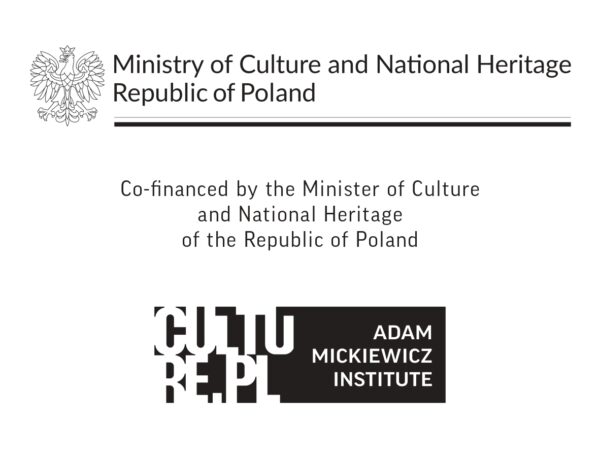Info
On 5 September, the 15th Gwangju Biennale, Southeast Asia’s oldest and most important art event, will open in Gwangju, South Korea. This year, the Adam Mickiewicz Institute is for the first time organising an exhibition in the Polish pavilion as part of the Biennale.
The Polish exhibition was created in cooperation with the WRO Art Center, curated by Paweł Janicki, with the following artists invited to participate in the project: Przemysław Jasielski, Alicja Klich, Madina Mahomedova, IP Group (Dominika Kluszczyk, Bogumił Misala, Jakub Lech) and Maciej Markowski.
Partnerami IAM, głównego organizatora Polskiego pawilonu na Gwangju Biennale, są Centrum Sztuki WRO, Ambasada RP w Seulu, Leeleenam Studio, miasto Wrocław oraz Paju Typography Institute.
During the opening, there will be screen printing workshops by Alicja Klich Art is no longer for me and DJ sets by Tola Kita (Luciolla).
Prezentowane prace:
Przemysław Jasielski, pamiętaj(mnie)
Maciej Markowski, 340.3
IP Group, Ambient Room #6: Discharge
Madina Mahomedova, Does AI Dream of Gender?
Alicja Klich, Sztuka już nie jest dla mnie
The curator of the Polish Pavilion at this year’s Gwangju Biennale, Paweł Janicki, inspired by, among others, the diagnoses of the philosopher Byung-Chul Han, gives voice in the project Katastematic Pleasures to creators opposing the stream of media infotainment, proposing a story about other pleasures developed in the language of contemporary media art – a language that offers something more than just the use of new technologies in artistic creation. Media art becomes a space for expressing emotions and shared existence, a place for dialogue between various cultures, where images of the past intertwine with the experiences of the present and visions of the world to come.
Przemysław Jasielski, an artist who creates at the intersection of engineering, artistic and scientific practices, constructs his own machines that image the world. In doing so, he reaches for images of the future created in the past – modernist visions, those coming from socialist-realist propaganda and those from old sci-fi. The IP [Identity Problem] Group collective, combining visual and performing arts through the use of sound, video and architecture, creates an immersive space that makes a meditative immersion in the present possible. Madina Mohamedova, in cooperation with Frederik De Bleser, asks the question of how virtual reality affects our understanding of gender identity and does so using AI technology – created not by one of the models of industry giants but by an independently developed system. Finally, Alicja Klich, combining the roles of a craftswoman, designer and artist, using tools as diverse as a sewing machine, a film camera and a computer, asks fundamental questions: for whom does art itself exist, and how does its circulation work.
The presentation is also complemented by works from the collection of Centrum Sztuki WRO (WRO Art Center) – an institution focused on media art, with a history dating back to the beginnings of the Polish transformation and a collection covering an even longer period: from the dawn of media art in the 1960s. Aimed at a wide, international audience, the presentation in the Polish Pavilion encourages reflection on the role of those media that are only conventionally called new, as well as the actual latest technologies in today’s artistic landscape, as well as our place in the local and planetary system of relations and inclusion in the multi-threaded story of contemporary times.
More information:
about the Gwangju Biennale can be found on their website: gwangjubiennale.org
and on Culture.pl: ‘Katastematic Pleasures’ – Exhibition in the Polish Pavilion During the 15th Gwangju Biennale
______________________________________________________
WRO’s presence at Gwangju Biennale is co-funded by the Wroclaw Municipality | wroclaw.pl
The project is co-financed by the Department of Culture of the Wrocław City Hall.
The organiser of the Polish Pavilion is Adam Mickiewicz Institute.
The Polish Pavilion at the Gwangju Biennale is part of a cultural programme organised by the Adam Mickiewicz Institute to mark the 35th anniversary of the establishment of diplomatic relations between the Republic of Korea and Poland.



